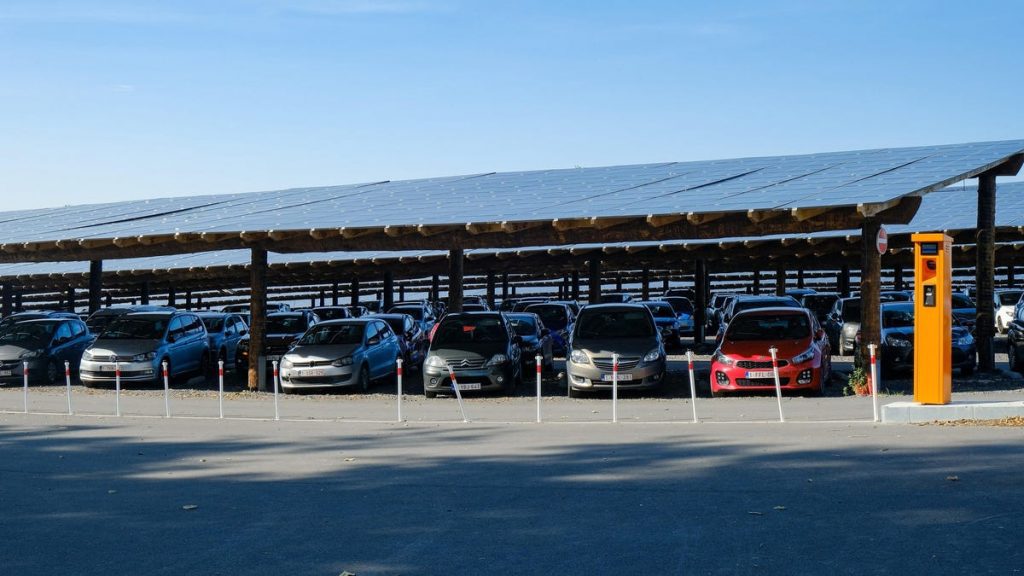France Requiring Solar Panels to Cover Parking Lots by 2028

A photovoltaic parking lot at a zoo in BelgiumPhoto: Zhang Cheng/Xinhua (Getty Images)
Parking lots across France are about to undergo a massive transformation. Over the past century, parking lots have become a ubiquitous feature of modern commercial development, with the exception of pre-existing densely-populated city centers. Swaths of sunbaked tarmac splotch the developed world with the sole purpose of having designated places to park vehicles. France’s government now wants to give parking lots a second purpose.
01:55
My First Car: Max Greenfield
Yesterday 2:30PM
The Senate of the French Republic has approved legislation requiring every significant parking lot in France to be covered with solar panels by 2028. The new law goes into effect on July 1, 2023, with the deadlines for compliance set on this date in upcoming years. Smaller lots must install solar panels by 2028. Larger parking lots will be held to a stricter deadline and must comply with the new law by 2026.
The view under solar panels at a photovoltaic parking lot in ChinaPhoto: Visual China Group (Getty Images)
The solar panels are intended to be built as shades over parking spots. The new law intuitively determines parking lot size by the number of parking spots in each lot. The threshold for the solar panel mandate is 80 spots. The large parking lot requirement for compliance by July 1, 2026 applies to parking lots with 400 or more spots. Initially, the bill required parking lots with 2,500 square meters of space or more to install solar panels. However, this was changed to 80 spots when the bill was in committee to remove any ambiguity over what parts of the pavement count toward measurement and make it clear where the panels should be built.
France’s government expected to generate 11 gigawatts of electricity or the equivalent output of ten French nuclear reactors. While 1.21 gigawatts might be enough to power a time machine fitted to a DeLorean, 11 gigawatts would amount to almost eight percent of France’s entire electricity capacity. It’s difficult to see any downside to this new law’s passage, which was a part of a legislative slate hoping to multiply France’s solar energy power by ten. It would also be nice to have your car sitting in the shade, instead of boiling under the sun.



